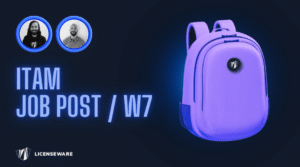A Turning Point for Digital Sovereignty in the Netherlands
📌 TLDR
On March 18, 2025, the Dutch Parliament passed motions to reduce reliance on U.S. software and cloud services, citing national security and digital sovereignty concerns. Key proposals include launching a Dutch-controlled national cloud, phasing out AWS use for national domains, and favoring European tech providers. This move aligns with a broader EU push for digital independence but faces significant technical and regulatory challenges. A formal government plan is expected later in 2025.
In a striking move on March 18, 2025, the Dutch Parliament approved a series of motions urging the government to reduce its dependence on U.S. software companies. These measures emphasize the creation of a national cloud services platform under full Dutch control and push for the active development of European alternatives.
Motivations: Autonomy, Cybersecurity, and Geopolitics
Lawmakers pointed to growing geopolitical tensions, especially under U.S. President Donald Trump’s administration, as a catalyst for renewed urgency. Dependence on American tech firms, they argue, represents a serious threat to national autonomy and cyber safety.
The broader context includes recent pressures on European trust in U.S. tech vendors. For instance, the U.S. CLOUD Act, which mandates that U.S.-based tech companies provide data to American authorities regardless of where it is stored, has heightened fears of foreign access to sensitive Dutch government data.
Core Motions Passed by Parliament
The motions passed by the Dutch House of Representatives are multi-faceted:
- Launch a tender for a national cloud entirely managed within the Netherlands.
- Re-evaluate the use of Amazon Web Services (AWS) for hosting the country’s internet domain (the “.nl” top-level domain).
- Prioritize European firms in public tenders, favoring homegrown and EU-based software providers over U.S. alternatives.
- Request risk assessments and exit strategies for all current systems hosted or managed by U.S. tech firms.
- Accelerate investments in European cloud infrastructure, urging the EU to support sovereign technological independence.
Broader European Movement Toward Digital Sovereignty
The Dutch initiative aligns with a wider European push to reclaim digital independence:
- Dozens of European tech companies have called on the European Commission to establish a sovereign infrastructure fund and adopt a “Buy European” mandate to bolster EU-based cloud solutions.
- Germany, too, has begun reducing its reliance on U.S. cloud platforms within its public sector, positioning itself as a precedent for what the Netherlands might achieve.
- The EU’s Gaia‑X initiative, aimed at creating a federated, secure European cloud ecosystem, complements these national efforts.
Challenges Ahead
While politically significant, the shift toward digital sovereignty comes with considerable challenges:
- Infrastructure and technical complexity: Establishing a robust, interoperable national cloud infrastructure requires significant investment and long-term planning.
- Market dynamics: European cloud providers must bridge the technological and economic gap against dominant U.S. players like AWS, Microsoft Azure, and Google Cloud.
- Tender and regulatory hurdles: Implementing preferential policies may face legal scrutiny or lobbying from entrenched global firms.
- Momentum and delivery: Despite the parliamentary support, DutchNews.nl reports that a comprehensive government plan will only be presented after the summer of 2025, potentially slowing momentum.
Implications for the Netherlands and the EU
a) National Benefits
- Enhanced data sovereignty and security: A Dutch-run cloud improves control over sensitive government data, reducing risks tied to foreign jurisdiction and surveillance.
- Economic stimulus: Encouraging European providers could drive technological innovation, create jobs, and reduce financial outflow to foreign corporations.
b) EU-Level Impact
- Strategic alignment: The move aligns with EU regulatory frameworks like the Digital Markets and Digital Services Acts, reinforcing continental digital policy coherence.
- Catalyst for broader adoption: If successful, the Netherlands may serve as a model for other EU member states, accelerating digital sovereignty across the bloc.
A Strategic Step Toward Digital Independence
The Dutch Parliament’s resolution on March 18, 2025, marks a decisive step toward reclaiming digital sovereignty in a world where tech power and geopolitical maneuvering intersect. By advocating for a Dutch-managed cloud, prioritizing European firms, and demanding thorough risk assessments of foreign tech dependencies, Dutch lawmakers have placed digital resilience at the forefront of national security policy.
Though implementation poses complex technical, financial, and regulatory challenges, the potential benefits—ranging from strengthened autonomy and cybersecurity to economic resilience—make this move both timely and transformative. As the Netherlands prepares its formal plan, all eyes will be on whether this marks the beginning of a broader European shift away from dependency on U.S.-based tech platforms.
Sources
- Reuters: Dutch parliament calls for end to reliance on U.S. software – 18 March 2025 (CTOL Digital Solutions, Reuters)
- ThePrint (via Reuters feed): Dutch motions for national cloud and reduced U.S. software dependence (ThePrint)
- The Register: Dutch MPs urge stop migration to American hyperscalers, repatriation of domain and cloud control (The Register)
- Euronews Next: CLOUD Act concerns and call for national cloud platform (euronews)
- Xinhua (via News.cn): Motion for risk analysis, exit strategies, European alternatives (Xinhua English)
- DutchNews.nl: Government plan expected only after summer 2025 (DutchNews.nl)
- CTOL.digital: EU-wide context, Gaia‑X, Germany situation (CTOL Digital Solutions)
- TechStory: Economic and sovereignty perspectives (Techstory Australia)










